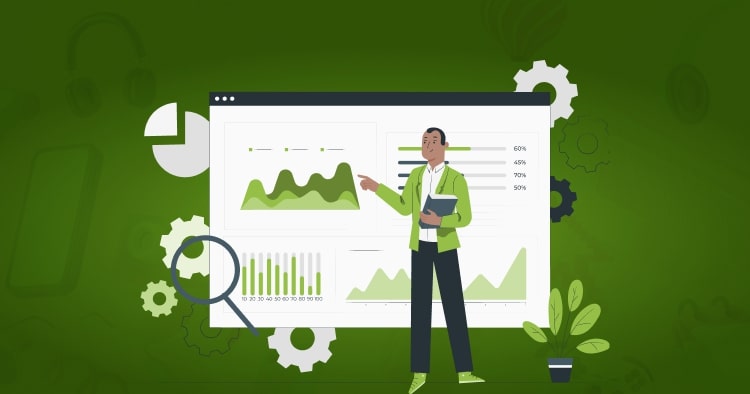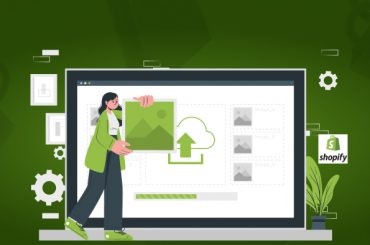How Much Does It Cost to Start or Run a Shopify Store?
Last Updated | July 24, 2024
Table of Contents
An Overview: How much money do you need to start a Shopify business?
Opening a Shopify store is easy you can open a store right now with just a few clicks. However, building and maintaining one is no easy task.
Launching a Shopify store requires a significant investment, both in terms of time and money.
Let’s assume you are willing to invest the time but do you have the cash?
To answer that, there is no fixed amount needed to start a Shopify store and the amount varies from business to business and niche to niche.
However, a good estimate would be around $2000 to $3000. This article will explore the entire insights into How Much does it Cost to Start a Shopify Store.
How much does it cost to start or run a Shopify store?
Many business owners tend to over or underestimate the cost of actually getting their business off the ground.
To resolve this problem, Shopify has conducted thorough research to provide a better picture for those that are just starting.
According to Shopify’s research, new businesses tend to spend an average of $40,000 annually in their first year of business.
Now, this doesn’t mean that all new business owners will tend to spend that exact amount. The amount greatly varies from business to business but is highly dependent on the number of employees a business has.
Read Also How Much Does it Cost to Hire a Shopify Expert
Shopify reported that businesses with zero employees averaged around $18000/year and businesses with 1-4 employees spent an average of $60,000/year.
So aside from employees what is this amount spent on?
- Shopify web development
- Shopify app development
- Shopify web design services
- Shopify migration services
- Advertisements
- Inventory & integration services
Besides the aforementioned costs, there are several other costs associated with opening a new store which includes but are not limited to one-time costs, taxes, legal fees, etc.
Is it worth opening a Shopify store?
Now that you know and understand what it takes to launch and run a Shopify store is it worth opening one up?
The answer to this question is short and sweet.
Yes, it is worth it, why, you ask?
Well, to start it’s cheaper than the competition. Shopify research shows that Shopify customers on average spend $2000 lesser annually than non-Shopify customers.
Besides being cheaper, Shopify is also much more user-friendly than its competitors. It is super easy to open and run an entire Shopify store online without any prior coding knowledge.
Furthermore, Shopify has endless themes, designs, and layouts to choose from which make your store stand out. It even has a business name generator in case you are having trouble choosing the perfect name for your business.
Moreover, Shopify support is second to none. It has 24/7 customer support with excellent online forums which cater to any problems you might have. Further resources like free tools, stock photos are also available to help you improve your business.
How much does the average Shopify store make?
According to a survey conducted by Littledata, it was found that the average Shopify store earns $72 per customer.
Additionally, the survey also set the benchmarks for both high and low-earning Shopify stores.
Stores earning greater than $149 per customer were placed in the top 20%. While stores earning less than $44 per customer were placed in the bottom top 20%.
Shopify: More Than Just Cheap and Easy
While Shopify is renowned for its user-friendly interface and competitive pricing, its true value lies in a suite of features designed to help businesses grow.
Built-in SEO Tools
Shopify comes equipped with a range of SEO tools to help your store rank higher in search engine results. This includes features like automatic title and description generation, URL editing, and the ability to optimize product pages with relevant keywords. By leveraging these tools, you can improve your store’s visibility and attract organic traffic.
Robust Marketing Automation
Shopify offers a variety of marketing automation tools to help you nurture customer relationships and drive sales. From email marketing and abandoned cart recovery to customer segmentation and loyalty programs, you can create personalized campaigns to engage your audience effectively.
Comprehensive Payment Processing
Shopify simplifies the checkout process with built-in payment processing capabilities. You can accept a wide range of payment methods, including credit cards, digital wallets, and even in-person payments. Plus, Shopify offers competitive transaction fees, saving you money on every sale.
A Thriving App Ecosystem
The Shopify App Store boasts thousands of apps to enhance your store’s functionality. Whether you need shipping solutions, inventory management tools, or advanced marketing features, you’ll find an app to suit your needs. This extensive ecosystem empowers you to customize your store and streamline operations.
Is Shopify Store Profitable?
Yes, Shopify stores can be highly profitable. However, profitability depends on various factors beyond the platform itself.
Key factors influencing profitability:
- Thorough business planning: Understanding your target market, pricing strategy, and cost structure is crucial.
- Market research: Identifying a profitable niche and understanding your competition is essential.
- Effective marketing: Driving traffic to your store and converting visitors into customers requires a well-executed marketing strategy.
- Operational efficiency: Streamlining processes, managing inventory effectively, and providing excellent customer service contribute to profitability.
- Product selection: Offering high-quality, in-demand products is vital for generating sales.
Common pitfalls that hinder profitability:
- Underestimating costs: Failing to account for all expenses, including marketing, shipping, and customer support.
- Ignoring market trends: Not adapting to changing customer preferences and competitor actions.
- Poor product selection: Offering products with low profit margins or limited demand.
- Neglecting customer experience: Providing subpar customer service can damage your reputation and sales.
By carefully considering these factors and leveraging Shopify’s tools, you can increase your chances of building a profitable online store.
Estimating Startup Costs and Maximizing ROI
Estimating Your Startup Costs
While the exact cost of starting a Shopify store varies, here’s a breakdown to help you estimate your initial investment:
- Shopify Plan: Choose a plan that fits your needs (Basic, Shopify, or Advanced).
- Theme: Decide if you’ll use a free or premium theme. Premium themes typically range from $140 to $180.
- Apps: List essential apps for your store (e.g., shipping, marketing, customer support). Research their costs.
- Domain Name: Register a domain name. Costs usually range from $10 to $20 per year.
- Payment Gateway Fees: Understand the fees charged by your chosen payment processor.
- Inventory: Calculate the cost of purchasing initial inventory, including product sourcing and storage.
- Shipping and Fulfillment: Estimate costs for packaging, labels, shipping carriers, and potential fulfillment services.
- Marketing and Advertising: Budget for initial marketing efforts (social media ads, email marketing, etc.).
- Design and Development: If you need custom design or development, factor in these costs.
- Legal and Professional Fees: Consider costs for business licenses, permits, and legal advice.
Optimizing Expenses Without Compromising Quality
- Free and Affordable Tools: Utilize free or low-cost design tools, social media platforms, and email marketing services.
- DIY Approach: Consider handling tasks like photography and content creation yourself to save money.
- Negotiate with Suppliers: Build strong relationships with suppliers to negotiate better deals on products or shipping.
- Outsource Wisely: Only outsource tasks that significantly impact your time or expertise.
- Leverage Shopify’s Built-in Features: Take advantage of free tools and features offered by Shopify.
Maximizing Return on Investment (ROI)
- Focus on Customer Acquisition: Invest in effective marketing channels to attract and convert customers.
- Optimize Conversion Rates: Improve your website’s design, user experience, and checkout process to increase sales.
- Build Customer Loyalty: Implement loyalty programs and excellent customer service to retain customers.
- Analyze and Adjust: Regularly track your store’s performance and make data-driven decisions.
- Diversify Revenue Streams: Explore additional income sources like dropshipping or print-on-demand.
Remember: While initial costs are important, focus on building a sustainable business with a strong customer base. Invest in quality products, exceptional customer service, and effective marketing to achieve long-term profitability.
By following these steps and continuously evaluating your business performance, you can optimize your Shopify store for success.
Conclusion
Opening your own Shopify store has become easier like never before. Using Shopify, you can achieve this seemingly back-breaking task using a few clicks.
However, like any other task, this too requires a lot of commitment and a significant amount of investment in terms of both time and money.
Besides the cost spent on employees, Shopify web development, Shopify app development, Shopify web design services, Shopify migration services, Advertisements, Inventory, other costs which are not limited to one-time cost, taxes and legal fees should be kept in mind.
But don’t worry! Shopify is much cheaper and user-friendly as compared to its competitors.
Not only this but it also has endless endless themes, designs, and layouts to choose from which make your store stand out.
All of these make Shopify profitable and a great source to generate money online.









